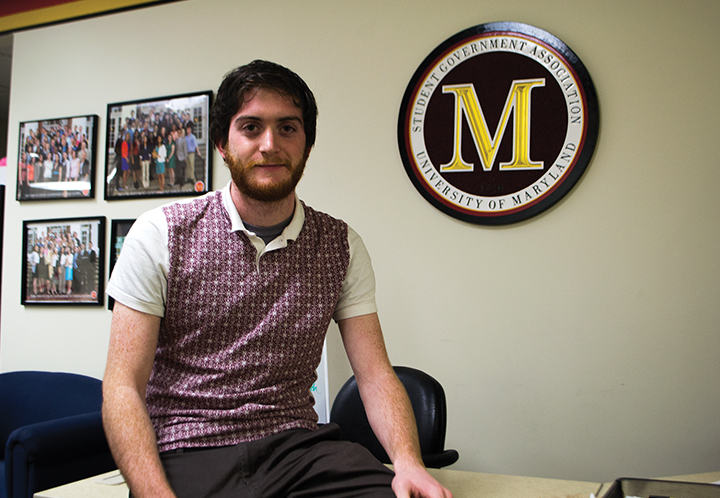
Joe Ehrenkrantz, Student Government Association diversity director, has been advocating for transgender health care coverage since his appointment to the new position.
This university’s student health insurance plan may expand to cover sexual reassignment surgeries, officials said.
The University Health Center is renegotiating the insurance plan it offers directly to students through UnitedHealthcare. So far, the health center has submitted proposals to three separate companies detailing what the university would like its new plan to include.
The proposals all include coverage of up to $100,000 for any kind of sexual reassignment procedure — including genital surgery, hysterectomies, mastectomies, breast augmentation and others. Hormone therapy, which is partially covered under the current student plan, would also be expanded and clarified.
Many resources still need to be added for transgender students, said Nicholas Sakurai, LGBT Equity Center associate director.
“[But] this is the major remaining exclusionary policy to be addressed,” Sakurai said. “This would definitely bring us a lot to where we want to be to make sure we’re not discriminating as an institution.”
Ultimately, price will determine what transgender health care coverage is added to the student plan, said Sacared Bodison, health center director.
“It is not a benefit many people would use, so it has to be weighed against all the other people who would pay extra money,” Bodison said. “I expect it to add to the premium. I’m just hoping it won’t add much.”
Bodison said she expects the average coverage would increase premiums by about $15 — a little more than 1 percent of the $1,363 students pay in premiums under the school plan.
The health center saw about five students for transgender care in the past two years, officials said, and one of those students used the insurance plan.
But Joe Ehrenkrantz, who has strongly advocated for transgender health care coverage since his appointment to the newly-implemented Student Government Association diversity director position this semester, said the number of students and cost shouldn’t factor into the decision.
“What we’re looking to do by including this is to not provide more services but to remove exclusion. Right now we’re excluding a certain gender identity from health care,” Ehrenkrantz said. “They’re calculating discrimination into the cost of health insurance.”
Institutional support of transgender health care would make a large difference to a community that is already at much higher risk for depression and suicide, Sakurai said.
“The cost is to our students’ well-being,” he said.
If the university does expand coverage under its student plan to include sexual reassignment surgeries, it would join a group of 50 schools nationwide and become the first in this state to do so.
The efforts of Ehrenkrantz and the LGBT Equity Center and the health center’s move to expand its coverage are part of a larger movement around the campus to address transgender discrimination. The campus is committed to including gender-neutral restrooms in any new construction,and many buildings around the campus already provide gender-neutral restrooms.
“More education, training and engagement will move us more toward being able to provide an empowering environment,” Sakurai said. “As people talk more about trans- and gender-variation, it builds a better climate for folks on campus.”



